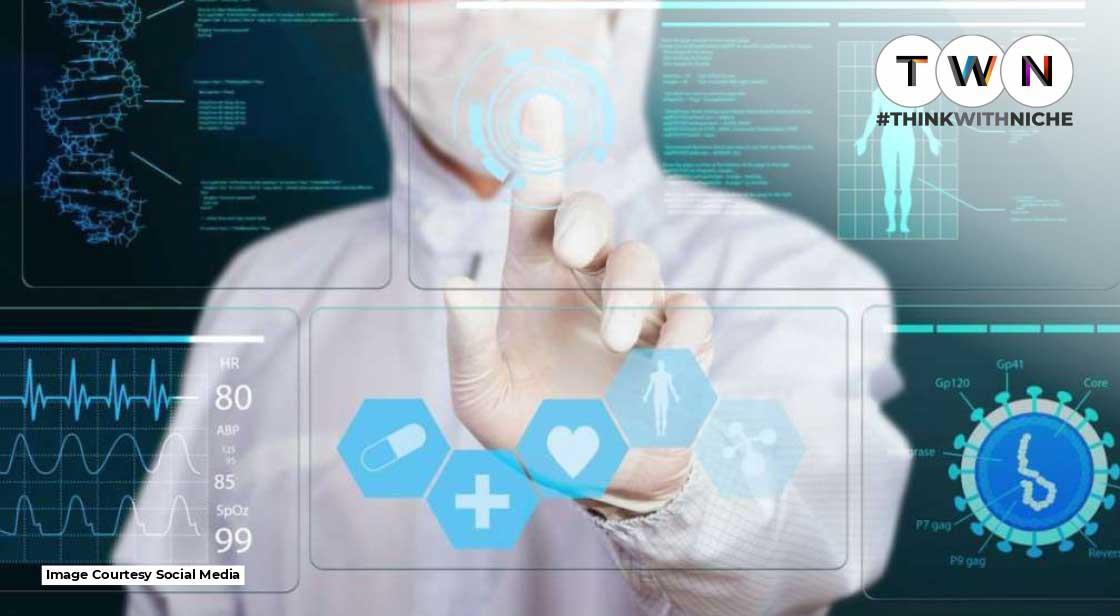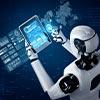How Artificial Intelligence in Healthcare will Transformation the Medical Sector for Good

Blog Post
AI is used to evaluate risks, make accurate diagnoses, and carry out precise surgical procedures. AI is now used in a wide range of medical specialties and facilities, such as rural care, surgery prioritization, drug discovery, and survival analysis. AI has only recently made the transition from academia and research centers to hospitals. Adoption is slow, some employees are concerned that it will replace them, and labor shortages persist. After this, A.I. in healthcare took a leap of faith. In healthcare sectors, artificial intelligence has started decreasing the workload of doctors and has proved to save lives. This article is about the involvement of artificial intelligence in medicine and healthcare. #TWN
The year 2022 holds great potential for A.I. in healthcare, but there is still a lot of work to be done. And here we are, about to discuss the potential of artificial intelligence (AI) in healthcare and medicine. I've thought about what AI for Good truly entails, and I'm convinced that much of the best stuff will be done in the healthcare & medicine fields.
For the first half of 2022, I've been covering artificial intelligence in healthcare, and it's been impressive. There has been a steady stream of news indicating some early adoption and a lot of research. From pinpointing treatments for cancer to combining AI with smartphones and trying to make technology more approachable, from early diagnosis to better prediction, artificial intelligence can and will improve our health and well-being.
You are not alone in seeing potential in artificial intelligence in healthcare.
A.I. and Healthcare
'We've trained devices to see what we see. However, it turns out that we have also trained machines to see stuff that we cannot see,' exclaims a neuroscientist.
While machine learning (ML) has been extensively used in many sectors, the use and implementation of AI in healthcare are still relatively new. AI has only recently made the transition from academia and research centers to hospitals. Adoption is slow, some employees are concerned that it will replace them, and labor shortages persist.
If AI is designed properly, it has the potential to improve our mental health as well. Instead, it has been used to make us addicted to applications on our smartphones and to sell more adverts. There is still hope for a better future. AI is used to evaluate risks, make accurate diagnoses, and carry out precise surgical procedures. AI is now used in a wide range of medical specialties and facilities, such as rural care, surgery prioritization, drug discovery, and survival analysis.
A.I in healthcare and medicine can take care of the following things:
- It can assess risks.
- Diagnosis can be very informed.
- A.I. can perform surgical procedures very precisely.
- A.I. improves accessibility
- A.I. can help in the early diagnosis of a disease.
Also Read: Morality and AI – The Real Struggle!
Role of A.I. in Medicine and Healthcare
Below are some of the roles of A.I. that are transforming the medical sector.
A.I. is simplifying care in hospitals, resulting in shorter hospital stays
Fast forward to 2022, and you'll find yourself in a new world of data integration. Artificial intelligence algorithms are searching for patterns in massive amounts of data in electronic health records in forecasting future results and recommending treatments.
They are developing early-warning systems to assist hospital staff in detecting subtle, but severe changes in a condition of the patient that isn't always noticeable or noticed in a busy unit, as well as forecasting which patient is about to be discharged are most likely to be readmitted.
- Improved EMR predictions
- Treatment recommendation engines that are more useful
- More automation tools can help doctors save time
- Improved appointment scheduling
- Improved warning systems to identify patients who may require additional care soon.
- Better discharge decision-making
AI applications are taught to recognize patterns and correlations in medical data that humans cannot. They can, however, search through massive amounts of data at breakneck speed and resolve problems much faster than humans. In the future, the forecasting potential of A.I. coupled with biotechnology, genomics, nanotechnology, and new research could add years to people's lives and improve living standards and well-being.
With mobile, ambient computer technology, drones, robotics, and IoT, new applications for the smart home, hospital, and how companies deal with their employees' mental health are on the way.
Artificial Intelligence in Psychological Health and Trying to promote Psychological Well-Being
Even in terms of our psychological well-being, increased awareness is driving increased adoption:
- Artificial intelligence (AI) is being used by mental health professionals to enhance the precision of diagnosis and treatment.
- Practitioners are turning to artificial intelligence to help with their overburdened workloads.
- Anxiety treatments are in high demand, according to 84% of psychologists.
- Technology is assisting with treatment quality control and therapist training.
As per the WEF, AI in healthcare is assisting doctors in detecting mental disorders earlier and making more accurate treatment plan decisions. Following their own research, apps and BigTech are beginning to take psychological health into account more. Communities such as Doximity also allow physicians to use artificial intelligence to improve their medical practice.
Also Read: Tips To Prevent Cloud Computing Misconfiguration
Conclusion
Implementation of A.I. in healthcare and education will be slower and more gradual than in other sectors such as retail, transit, procurement, pharma, and consumer apps due to the regulatory care that must be taken. It will most likely take decades for A.I. to meaningfully interact with our healthcare and to optimally personalize our healthcare.
Still, I believe it is an important issue worth discussing.
We hope that you liked the article and have seen the accessibility of A.I. in healthcare and medicine.
A.I. and healthcare are two fields that are now combining for the betterment of human health.
You May Like
EDITOR’S CHOICE












